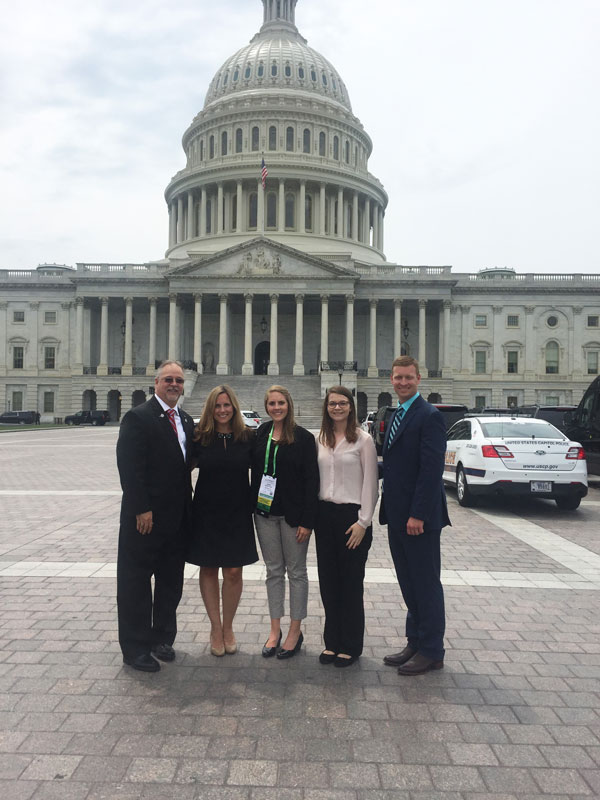Four students at the UAB School of Optometry visited Capitol Hill on June 22 to meet with legislators and advocate for optometrists in Alabama.
Students Lauren Boudousquie, Jessica Boyd, Samantha Elliott and Natalie West joined School of Optometry faculty and other Alabama optometrists to meet with Rep. Robert Aderholt (R-Ala.) and staff members from the offices of Sen. Luther Strange (R-Ala.) and Rep. Bradley Byrne (R-Ala.).
The meeting was part of American Optometric Association on Capitol Hill/Congressional Advocacy Conference, an annual event that gathers optometrists and students from across the U.S. to meet with their state legislators.
Boyd said a topic of conversation was the Dental and Optometric Care Access Act, which is backed by the American Optometric Association and the American Dental Association. The act seeks to ensure fairness in contracts between doctors and insurers, eliminate anti-competitive practices in health care and improve overall quality of patient care, according to the AOA.
“Many insurance companies require doctors to use certain labs, to give discounts on non-covered services and to accept a particular vision plan to be able to participate in a medical plan,” says Boyd. “All of these things can get in the way of good patient care.”
She said they also discussed proposed changes to the Contact Lens Rule, which would require optometrists to have patients sign acknowledgements that they received their contact lens prescriptions.
“Optometrists are already required to release the prescriptions to patients,” Boyd says. “This extra paperwork could be burdensome to any practice.”
Boyd says she learned that meeting with legislators was easier than she thought.
“It is important because our profession and how we practice depends on it,” Boyd says. “The legislators are going to listen to someone, so we might as well try to make our voice heard.”
West, who also attended the conference in 2016, said it’s critical for optometrists and optometry students to meet with their state representatives about issues facing the profession.
“If we don’t advocate for ourselves and bring awareness to what we do day to day, no one else will,” she says. “I feel it is our duty to educate persons outside our profession that we do so much more than prescribe a glasses or contact lens prescription. We are concerned for our patients’ health, and the eyes can tell you a lot about what may be going on with the rest of the body.”
The Congressional Advocacy Conference was timed with the American Optometric Association’s annual meeting, which was held this year in Washington, D.C.
Christopher J. Quinn, O.D., president of the AOA, said in a message to AOA members that the timing of the meeting and conference represented optometry’s largest advocacy event ever.
“At a moment when major health care legislation is taking shape, we had more than 6,200 of us in Washington, D.C.,” he said. “Our AOA and state associations were heard loud and clear in the nation’s capital as never before. However, as we know, impactful advocacy is about more than one day or one week. It must be active and ongoing as we work to build on past legislative and regulatory wins and safeguard our essential and expanding role in health care system.”
